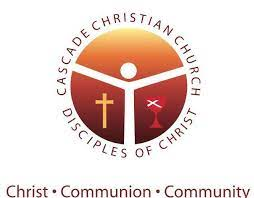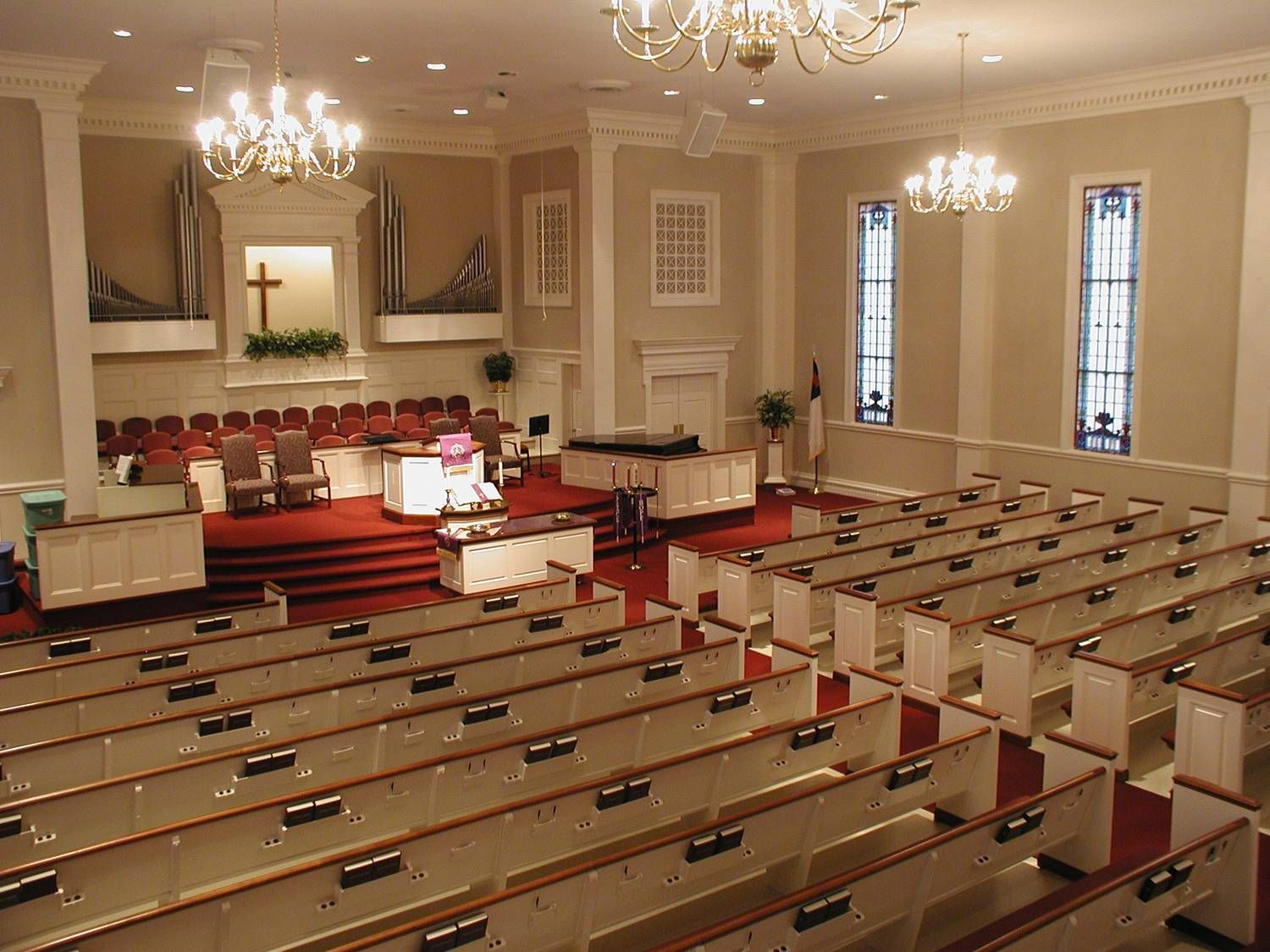"For where two or three are gathered
in my name, I am there among them."
Matthew 18.20
Reflections of Cascade Church
There are two symbols that will always be meaningful elements in my life... the continuous-forever-flow of our Thornapple River and the shape of our historic white steeple framed against the layers of trees. They represent answers for me. It is appropriate on the 125th Anniversary of Cascade Christian Church that we look to them as simply symbols of continuity and innovation.
On the occasion that I attend the Sunday 8:15 A.M. worship service here in Cascade, I listen to the various voices singing and reading. I find myself wondering about all the different people who came before me to worship in the chapel... about who might have sat in the pews 50 or 100 years ago... about their life journeys... about how we change and grow through our struggles... about how we keep coming back.... Just as it is now, 125 years ago, Cascade was a growing village of newcomers settling in the Thornapple River valley. They were raising families, making a livelihood, experiencing the birth of technology and exploring the new ways of living. Although our daily activities have changed, we have many of the same challenges as those pioneers.
The Victorian Age... A Rural Period
Imagine for a moment a worship gathering on October 8th, 1864. It's likely that it was one of the homes of the Stows, the Browns, or the Richardsons. These 16 people gathered simply to pray together, to share their concerns, worship God, and remember Christ. For fifteen years the faithful people of Cascade Christian Church brought their new neighbors to their weekly gatherings. They baptized people in the river and took turns preaching. The villagers met in homes or the school house or in the Red Ribbon Hall which later became the home of Mr. & Mrs. Fred Carr. As it remains today, it was a community effort.
In 1876, in commemoration of the 100th anniversary of the Declaration of Independence, George Steward Richardson planted 100 oak, maple and elm trees at the heart of Cascade Village. In the late1870's, Mr. Richardson, often called "a public-spirited individual," gave a building site on Orange Street for a new church to the congregation. Being that the new "church house" would be used for community gatherings as well as for worship, everyone in the village and community helped with the project. I'm sure many prayers went up for the structure. In October of 1880, the new chapel's bell called the villagers to worship. I wonder if the builders and founders had an idea that their little chapel would still be in service 125 years later.
For about 60 years the village maintained 58 people, and the township totaled 1200. Newcomers could travel to Grand Rapids or to Ada by train. In Cascade, just down [the] river, magnetic springs were discovered, thought to have the "power of healing all known diseases." It was truly a rural community. Horses parked in the shed across the way. Everyone knew everyone.
Cascade Christian Church was, and still is, what we might call a networking group. A farmer could call upon the congregation for help bringing in a crop or raising a barn, or whatever need there might be. In all the personal testimonies written about Cascade and about Cascade Church, there always seems to be mention of community outreach and an interest beyond the church membership.
The community outreach programs can be traced as far back as our first full-time minister - Elias Sias. In the 1890's, the Christian Endearment Group formed with "the young people" for the purpose of community projects and charities. As it was the only one of its kind, the group drew youth from many denominations. Although the gathering and activities were religious in nature, many young men and women met their spouses this way.
The Age of Automation
Cascade felt the nudge of technology with the introduction of the Model T Ford. By 1920, the horse shed where the horses parked during church was pulled down. It was the beginning of the Roaring Twenties. The chapel was freshly painted inside and the monthly bulletin said that, "the church building will gladly be opened to the community for any righteous purpose." The church had competition then. People could get in their cars and really "go somewhere." The carbide lights were replaced with electric ones. People concentrated on what was new. Rev. Lester Doerr gave much of his time to the youth in the church.
The depression of the Thirties was truly a challenging time for Cascade Christian Church. Mr. Doerr, like other minsters at Cascade, who always returned much of their salaries back to the church, served several years without stipend. Yet, there were almost twice as many new members as in the Twenties. Many of Mr. Doerr's youth became, and possibly still are, leaders here in the community.
Mr. Doerr resigned to enter the army in 1939, turning the church over to Frank Green who served until 1945. In spite of the war, during the Forties people gradually moved into the area. A social room was added on over the church kitchen. Attendance fluctuated. Harold Chambers, a superintendent of the Forest Hills Schools District served for a year, remembered for stressing Christianity in our everyday living and daily responsibilities. He sponsored various programs for returning servicemen.
Both Mr. Green and Mr. Doerr returned for a few years; Doerr paving the way for the postwar exodus from the city and the mushrooming suburbs. This period in the late 40's and 50's was the time when the church was concentrating on opening minds and doors. Youth groups rallied for various community projects. The Tri-Cees (Cascade Christian Crusaders) formed to promote "Christian fellowship and recreation for the community, and to undertake projects which would help the growth of the church and community." The scout troops formed in the church as did youth groups and ladies guilds. It was a time of zest and vigorous growth. With Sunday School classes overflowing into the town hall our Christian Education Building took priority. The building was dedicated in 1957, again to the church and community.
As written in the Centennial Issue and in Rev. Gaylord's beautiful story of his three decades here at Cascade, the development of this church is truly fascinating. Again it is not just a history of a growing church; it is a story of people and of how we change and grow through and because of our struggles.
Growing up in Cascade Church
When the chapel services were overflowing - 125 people - past the fire safety code, the congregation built the sanctuary. Most likely I came, still in my first year, with my parents and brothers to the dedication service. Probably my brothers participated in some part of the service. Like my brothers, I went to nursery school, Sunday school and choir. I went to Camp Crystal for several summers for youth camp, family camp, and CYRO camp. Truly, my first spiritual awakening happened at camp. Rev. Gaylord baptized me there in chilly Crystal Lake.
I spent many learning hours in youth groups, church awards and Tags... stuffing envelopes... visiting area community projects and churches... working all day... and falling in the creek... at camp Gaylon... sending Valentines to Kent county jail inmates... anonymously delivering baskets of food to the poor... [and] traveling with the youth choirs. We learned, not necessarily by words, rather by doing, and by following the examples set by our teachers. Although I didn't realize it at the time, these experiences were formative. I was learning ways in which to take Christ as my personal [role] model.
With a history of conflict and criticism between the various "Christian" denominations, I now find it truly a "Christian" concept to put aside the grievances and invite a Catholic priest into our church every Thanksgiving. This is what setting a "Christian" example is all about. I will always have fond memories of the Christmas season at Cascade Church... of the Christmas Eve Worship service... of my Dad dressing up as a Santa with black eye-brows poking out from underneath a white wig... "What a sight!" All for Operation Santa Claus! I will always remember him standing in our kitchen talking about the faces of the under-privileged children to whom he was distributing gifts. Operation Santa Claus has expanded into various other non-seasonal programs. The people at Cascade Christian Church give to literally thousands every year. Ultimately, I learned that "Christmas giving" is meant to go on through out the year.
There were other examples... My mom [was] always baking pies or bread for supper at church or sewing choir robes or bringing a meal to someone... or she was off on a "Save the Tree Mission". Perhaps I too that effort for granted when I was growing up. But these last few years, I have developed a great respect for the countless hours of work women like my mom quietly contributed to the Christmas Workshop, and church meals, and all of the behind-the-scenes charities. Whether they know it or not, there are so many women here in the community who have taught me important lessons just by giving their time... in all of those little things! It's the effort that counts!
The interpretive choir will always be dear to my heart. It was one of those things that touched me deeply the very first time I saw the group. like the other choirs, and special music, I found it to be another mode of worship and spiritual expression. It is important to find these creative, spiritual avenues. As things come around [during the annual church calendar], here I am working [again] with the interpretive choir.
The social element was a strong pull. Like many youth before me, I too met my first love one Sunday after church, eating cookies over in the East Parlor. I remember noticing him in the Christmas programs, and in the older TAGS classes. He became a camp counselor, a junior deacon, and an Eagle Scout. Yes, he was, and still is, a beautiful person, and had we lived 100 years ago we might have been one of those pioneering couples in Cascade. But, like our river, we change, grow and continue to move on, following out little niches here and there [even as the Thornapple River rolls itself through our community].
Of course, when I went off to college I thought that I would find a different church, maybe a new way of worship. I thought that somehow if I didn't go to the same church as my parents then I would be truly grown-up. In fact, I visited many different churches - I even stopped going for a while. And although I have met some delightful people, when I came home, I suddenly appreciated Cascade Church for what it [was and] is. It struck me that church was never just church or self contained. It always managed to integrate with the community. That is the essence of the outreach. After I graduated, I went off to Oxford, Ohio (Cincinnati), to work and just grow. [But years later], once again, I live along the river in the Fredrick Wykes' home in Alaska, [Michigan].
It touched me when I returned... in so many ways things haven't changed here at Cascade Church. Like always there are lots of new faces on Sunday... new programs... and struggling issues. That's what makes it the same Cascade Church.
New Faces... New Programs... New Issues...
but it is still Cascade Church
by Dianne VanStrien
date of writing unknown
*1989 would marked the
church's 125 year anniversary
ORIGINAL DOCUMENT
ADDITIONAL REFERENCES
November 19, 2014
CHURCH PICTURES
2021-2022
THE GOOD OL' BOYS
CASCADE CHRISTIAN CHURCH









































